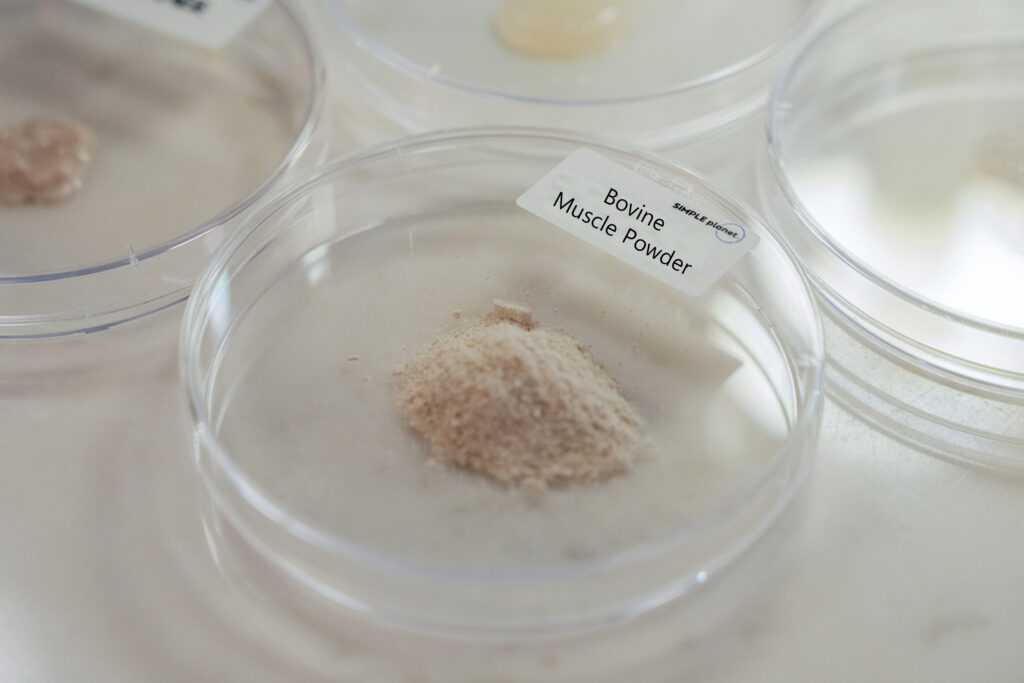Simple Planet, a South Korean cultivated meat company, recently announced its ambitions to tap into the global cultivated meat market by initiating branches in North America by the latter half of this year. While it will not be the first of its kind to achieve commercialization in the US or elsewhere, Simple Planet differentiates itself with its novel approach to food cultivation.
While many food tech companies focus on growing whole pieces or cuts of meat or seafood, Simple Planet specializes in the cultivation of meat powder and cultivated unsaturated fat. These products not only bolster the nutrition of various foods but also elevate their taste palette. Such versatility ensures a smoother market entry for these ingredients as compared to the complete cultivated end products.
This global outreach has been fueled by Simple Planet’s remarkable advancements in its cell culture platform and cell organization technology. The recent green light to commercialize cultivated chicken in the US has also turned heads, drawing companies on the brink of launching their products.
Related: Ever After Foods’ Revolutionary Bioreactor Platform for Cultivated Meat Production
At the heart of Simple Planet’s operations is a state-of-the-art facility capable of large-scale production of raw ingredients through its pioneering cell line development platform. To date, the company has established 13 diverse cell lines, each tailored to generate distinct animal proteins and fats.
Beyond this, the company has innovated a cost-effective probiotics-driven serum-free edible culture medium, serving as an alternative to the prevalent fetal bovine serum (FBS). This serum currently dominates cell-based food production costs, making up over 80 percent of the total. Coupled with its expansion strategies in the US and Canada, this breakthrough paves the way for a swifter commercialization of cell-based food products.
The surging global population and the rising demand for traditional meat expose the limitations of the current food production systems. Currently, over 80 percent of the world’s agricultural terrain is dedicated to livestock, with one-third of worldwide grain output being channeled into feed grains. In this scenario, cultivated meat is stepping up as a viable answer, addressing resource limitations while also promoting biodiversity preservation and resource recycling.
Taking a distinctive approach in this evolving landscape, Simple Planet extracts cells from animal tissues and cultivates them on a grand scale. This process produces cell-derived ingredients, including alternative proteins and unsaturated fats, primarily in powder or paste forms, diverging from the commonly produced hybrid cultivated meat products.
These protein-rich powders and adaptable unsaturated fatty acids hold boundless potential as food components. They can amplify absorption, enrich the taste and fortify the nutritional blueprint of traditional foods. Additionally, they hold promise as specialized ingredients tailored for the nutritional needs of the elderly and infants.
Simple Planet’s innovations have garnered international recognition. The company secured a coveted spot in the 2022 Food-Tech 500, a prestigious honor presented by Food Forwarding in the UK. The company also stood out as the sole Asia-based contender in the MassChallenge Switzerland 2023, a reputable startup accelerator.
Speaking about the company’s trajectory, Ildoo Jeong, CEO of Simple Planet, said in a press release, “Simple Planet’s cell-based food ingredients will be supplied diversely as target materials in the global cultivated meat market, and we are preparing for commercialization and global market entry starting with the establishment of our North American branches in the second half of 2023.”












Join or login to leave a comment
JOIN LOGIN